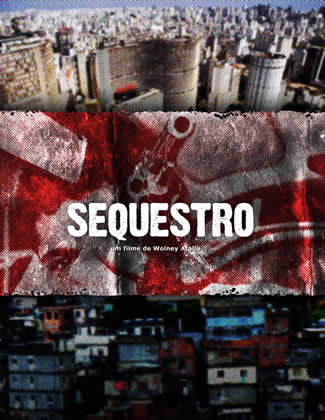 Jorge W. Atalla’s Kidnapping, (Sequestro) which won both the Best Director and Best Documentary and received a lengthy standing ovation on opening night will be developed as a narrative feature. Exec producer Frederico Lapenda will produce the action adaptation from a script by co-producer Christian Gudegast.
Jorge W. Atalla’s Kidnapping, (Sequestro) which won both the Best Director and Best Documentary and received a lengthy standing ovation on opening night will be developed as a narrative feature. Exec producer Frederico Lapenda will produce the action adaptation from a script by co-producer Christian Gudegast.
Jorge Wolney Atalla’s in your face documentary “Kidnapping” (“Sequestro“) chronicles the crisis of extortion kidnappings in Brazil. Atalla spent four years filming victims, victim’s families, and the officers of Sao Paulo’s Divisão Anti-Sequestro (DAS) a special Anti-Kidnapping Division formed in 2001 when the epidemic of kidnappings became untenable. Victims from six to eighty, and every level of society, share their harrowing stories.
Four years of negotiation with the government and the police eventually gave Attala’s team access to the DAS. The crew spends time with families sweating through the period of extortion negotiation with the kidnappers. DAS officers coach them how to withstand the increasingly violent phone threats in a ghastly war of nerves. The audience is on edge wondering if we will see recovered victims or grisly body parts.
The film also details the stressful lives of the young DAS officers and their families, who suffer through the kidnappings along with the families. Happily, we are present at numerous rescues, and witness the tragic discovery of bodies recovered during failed negotiations.
Atalla tracks the technique of kidnappings from their pan-Latin American beginnings as Leftist acts of political terrorism. Atalla interviewed members of the former Revolutionary Leftist Movement of Chile (MIR) who were involved in the attempted kidnap of Brazilian mogul Abilio Diniz (rescued after six days.)
Interviewing the idealistic revolutionaries, who went to prison for their political crimes, reveals an ironic story. The justice department hoped to break the moral of the activists by incarcerating them in the overcrowded general prisons. The filmmakers contend that their plan backfired. The general prison populations learned kidnapping techniques from their political cellmates, creating a crime wave of extortion hostage kidnappings across Brazil.
In their filmed interviews the Diniz kidnappers Raimundo Roselio (still in the penitentiary in Ceará), leader Humberto Paz and Horacio Paz (both released after serving twenty years), claim they never taught any criminals how to run a kidnapping operation. The revolutionaries learned what a kidnap victim experiences from their own imprisonment. Horacio, in his twenties at the time of the kidnapping explains, “I would never do such a thing now. You mature, but about the ideals for which we were tortured and imprisoned, I’d fight that fight again.”
Like Kevin MacDonald’s Oscar winning documentary (“One Day In September“) about the massacre of Israeli athletes at the Munich Olympics, Attala conceived his searing doc as a thriller, structured around the kidnapping of Joseph Ibiapina de Souza. Rapid fire editing by Atalla, Marcelo Bala and Marcelo Moraes keep the tension high.
We follow the de Souza abduction from the first day till he is rescued 33 days later. A fake female voice on a collect call repeatedly threatens to kill 68 year-old Jose Ibiapina. Son Alessandro, the prime negotiator, sweats it out surrounded by his family and the DAS coach. It’s a cruel war of nerves. Dr Raul, the officer in charge of the case explains. I was chief inspector when my brother was kidnapped. It’s going to get worse. They want to destabilize you.”
2 years-old Mr. Dirceo was abducted from his office. As the panicked children worry if he wiil survive without his medications, the unit continues its investigation. Tracking a series of calls, officers link the captor Berto to the kidnapping organizer in Valpairiso Prison.
We’re present when they bust Berto, his girlfriend, and other family members who did the imprisoned kidnappers’ dirty work. The case officer and Berto negotiate with the prison mastermind. “We’re professionals too. Let’s talk man to man,” says the jailbird perp, ironically begging for the release of his own family. Dirceo, who survived 41 days without his meds, is dropped off at a neighborhood pharmacy. When disbelieving victims are recovered, some rendered speechless as they are pulled to safety, the audience is in tears from released tension.
376 people were kidnapped in the state of Sao Paulo alone, during the filming of “Sequestro”. Atalla’s documentary “In Cane for Life” (“A Vide em Cana”) won numerous festival awards in 2000.

